Native standard screen projection protocol:
Compatible with Airplay, Miracast, GoogleCast, DLNA native projection protocols, as well as USB data cable wired projection, fully compatible with chip platforms such as HiSilicon, Amlogic, Ruixin Micro, Sigmastar, Quanzhi, and Intel, facilitating integration for chip manufacturers, set-top box manufacturers, TV manufacturers, and device integrators.

Bijie Private Screen Projection Protocol:
The BJCast transmitter SDK provides Windows, MacOs, Android 5.0+, and iOS platform SDKs. Users can integrate the transmitter SDK into their own apps or software applications, and use it with the Bijie screen mirroring receiver device to achieve wireless mirroring of mobile phones, pads, and PCs.
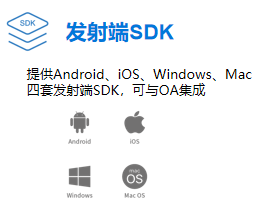
Design diagram of transmitter SDK and receiver SDK
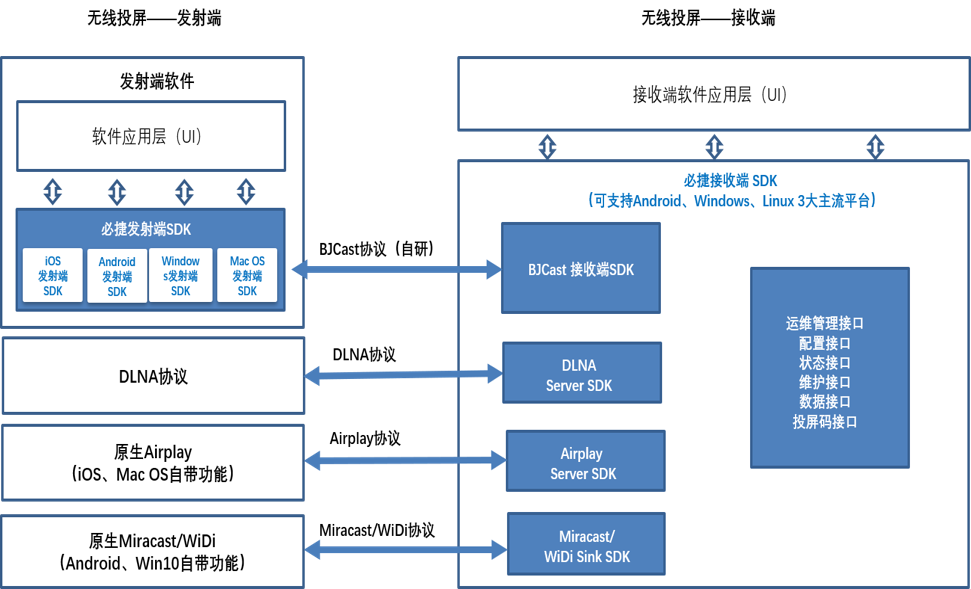
- Perfect support for image projection, URL projection, and music projection
- Support for YouTube screen mirroring (suitable for overseas users)
- Perfect compatibility between Tencent Video and YouTube in URL mode
- Supports multiple screen projection, users can set the maximum number of screen projection paths
- Support resolution and frame rate negotiation
- The SDK interface is easy to integrate and provides demo source code, which has been widely used by many customers and is mature and stable
- Supports Windows/Android/Linux platforms (depending on user needs, special platforms require cross compilation)
- Cloud license authorization, multiple authorization methods, supporting overseas authorization
- License service provides management backend, query and export authorization report functions
- Supports Android/Windows Miracast functionality
- Good compatibility, years of research and development accumulation, and actual compatibility testing of over 100 devices
- Adapted to over 20 WiFi modules, including Broadcom, Qualcomm, and Realtek
- Supports multiple screen projection, traditional Miracast can only support one screen projection
- Support keyframe requests, frame loss handling, etc
- Supports Windows mouse independent channel and HDCP (optional)
- Supports Android/Linux platforms (depending on user needs, special platforms require cross compilation)
- Cloud license authorization, multiple authorization methods, supporting overseas authorization
- License service provides management backend, query and export authorization report functions
- Implementing DLNA Mediarender functionality
- Supporting TV projection function for video players such as iQiyi and Youku
- Supports mobile pause, playback, progress bar drag, stop and other functions
- Support for image projection function
- Supports Android/Windows/Linux platform, provides c/c++integration interface, Android provides aar for application integration
- Received cloud license authorization, multiple authorization methods, supporting overseas authorization
- License service provides management backend, query and export authorization report functions
- Supports Chrome browser/ChromeBook/Android phones (requires Android phone support) for Google Cast image projection
- Supporting simultaneous screen projection from multiple transmitting terminals
- Currently supporting the Android platform, other platforms can be customized and ported according to customer needs
- No need to rely on Google services, can run on regular Android devices
- Android provides aar format for customer integration
- Received cloud license authorization, multiple authorization methods, supporting overseas authorization
- License service provides management backend, query and export authorization report functions
- Android devices use Typec data cables to connect to the receiving device, and the receiving device automatically plays the Android device screen.
- Android devices need to enable USB debugging options
-
The Apple device uses the official data cable of the Apple device to connect to the receiving device, and the receiving device automatically plays iPhone/iPad device images and audio
- Support for mirror projection of BJCast transmitter applications in Windows/Android/MAC/iOS versions
- Self developed mouse independent channel (Windows screen projection mouse is smoother)
- Users can implement extended scanning and screen casting/screen casting code screen casting functions based on SDK
- Supporting simultaneous screen projection from multiple BJCast transmitters
- Supports setting transmission protocol UDP/TCP, supports critical requests, and supports link anomaly detection
- The receiving end supports Android/Windows/Linux platforms
- The receiving end provides a C/C++integrated interface, while Android provides an aar module
- Received cloud license authorization, multiple authorization methods, supporting overseas authorization
- License service provides management backend, query and export authorization report functions
- Provide SDK for Windows, MacOs, Android 5.0+, and iOS platforms
- Equipped with screen acquisition and hard coded network transmission functions
- Windows can provide c/c++/c #, node.js Electron add-on interfaces
- The MacOS platform provides the Object/node.is Electron add-on interface
- Android SDK provides aar integration package and Java interface
- The iOS platform provides an Object C interface and has the ability to call iOS Airplay or iOS screen recording
- Provide easy to integrate interfaces, with a cycle of 1-2 weeks
- The role of transmitting audio and video data.
- SDK can be integrated into user apps (supports Windows/Android/iOS/MacOS clients)
Receiver:
- The role of receiving audio and video data and performing corresponding processing.
- Implement protocol stacks for BJcast, Airplay, Miracast, and DLNA receivers to receive audio and video streams
- Provide a secondary development interface for the receiving end
- Can run on teaching all-in-one machine/central control host/PC computer, etc
- Supports Android Windows system
- In a system where multiple receiving devices interact, divide multiple receiving devices into an interactive group
- In the dynamic group, each role of the receiving device defaults to using multicast to achieve data transmission (multicast supports 1-to-many, which can effectively reduce the sending bandwidth of the sending end during broadcasting).
- The devices within the current interactive group use the BJCastGroup group management protocol.
- Create/delete/join/exit group
- Push/pull flow and other operations
- SDK includes screenshot encoding and decoding
- Transferring audio and video streams between groups
- Can run on teaching all-in-one machine/central control host/PC computer, etc
- Supports Android/Windows systems
The interactive group has the following attributes:
- There is a domain ID, and different groups need to use different values through configuration constraints
- There is a main device in the group
- There are multiple slave devices within the group
- Managed by the master device, each device is identified by an agentID

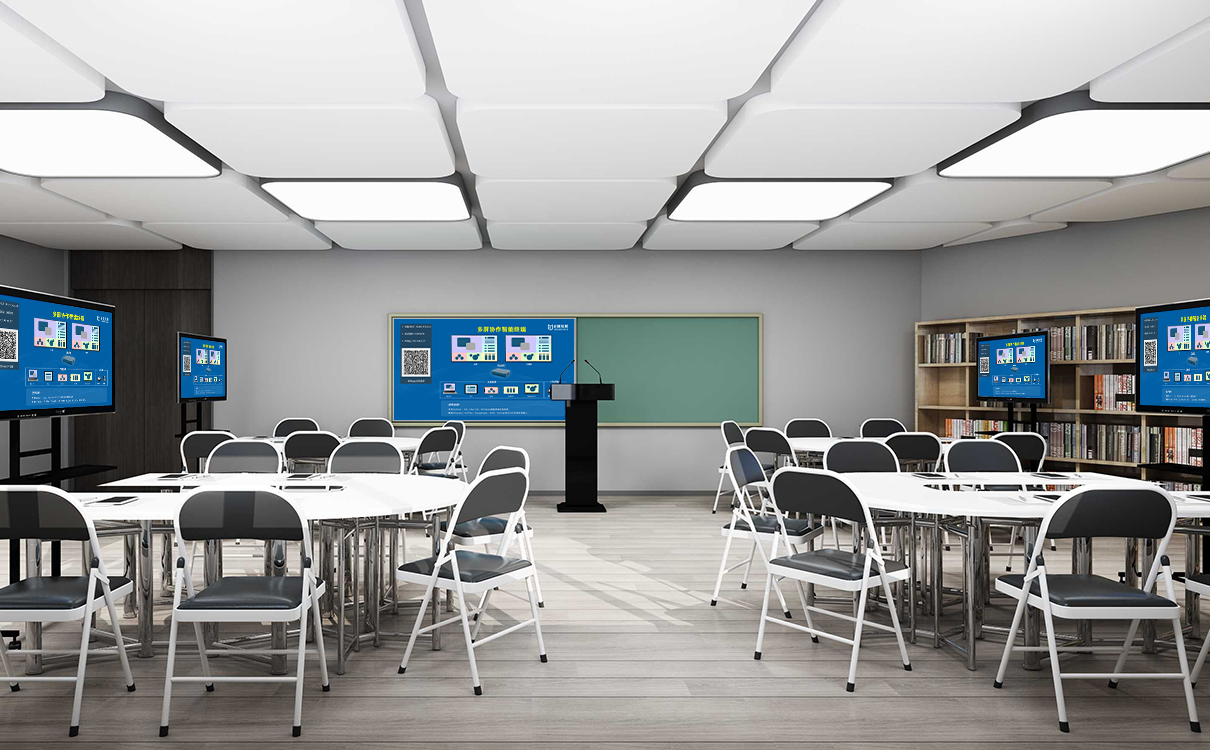

Integrating the SDK into a smart projector allows for wireless projection of conference content, reducing the complexity of programs and making it more convenient to use.
 Smart glasses
Smart glasses
Integrating the SDK into smart glasses can project games from VR glasses onto the TV for a wider user experience. Or project games from computers or mobile phones onto VR glasses to give users an immersive feeling.
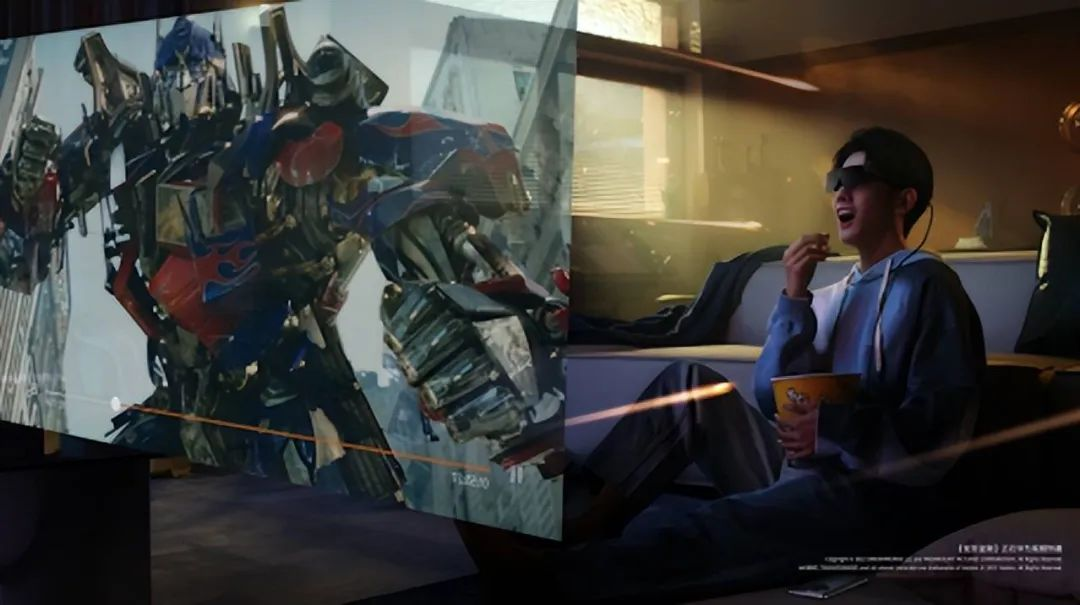
Vehicle navigation
Integrating the SDK into car navigation allows for direct projection onto the infotainment system when navigation is needed. The infotainment system has a larger screen and clearer map display, making it easier for drivers to view navigation information while driving. Some infotainment systems can also be projected onto the instrument panel, so drivers do not need to shift their gaze to the central control screen. They only need to look at the instrument panel, making driving safer.
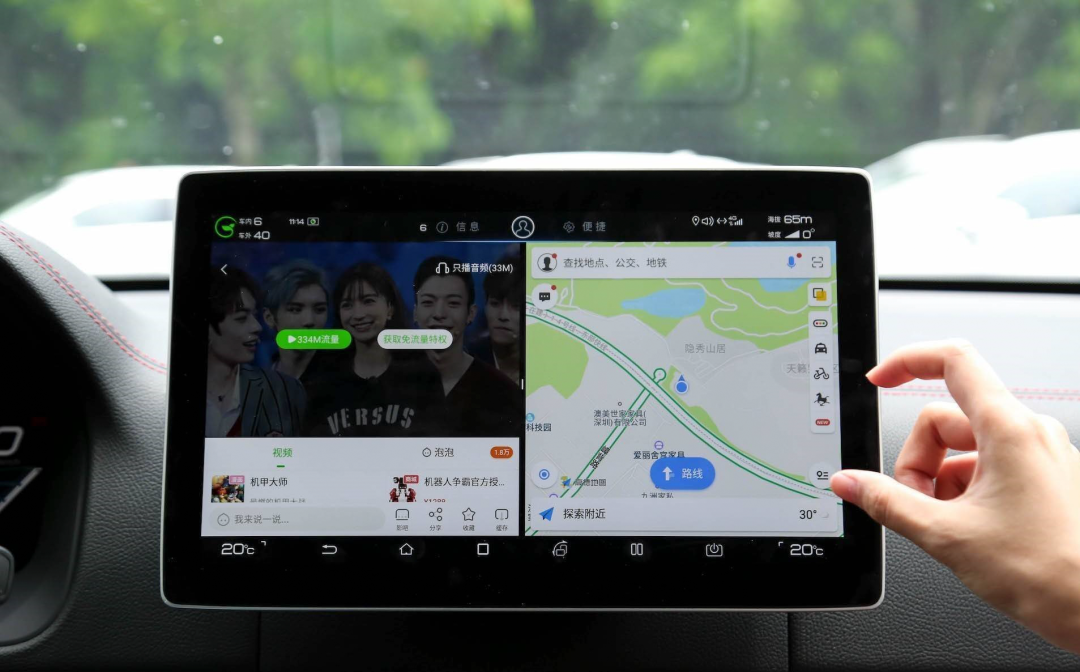
Display large screen
Integrate the SDK into the display screen, supporting 1080p high-definition display, wireless screen mirroring on mobile phones and computers, and allowing for easy switching of screen sizes; Apps such as iQiyi, Youku, and Tencent Video directly project videos, making it simple and easy to use.

Smart Home
Integrating SDK into smart homes allows people to optimize their lifestyle and living environment by projecting recipes onto a range hood with a small screen, food preservation temperature onto a refrigerator with a screen, and skincare steps onto a mirror with a screen projection function. This helps people effectively manage time and save various energy.
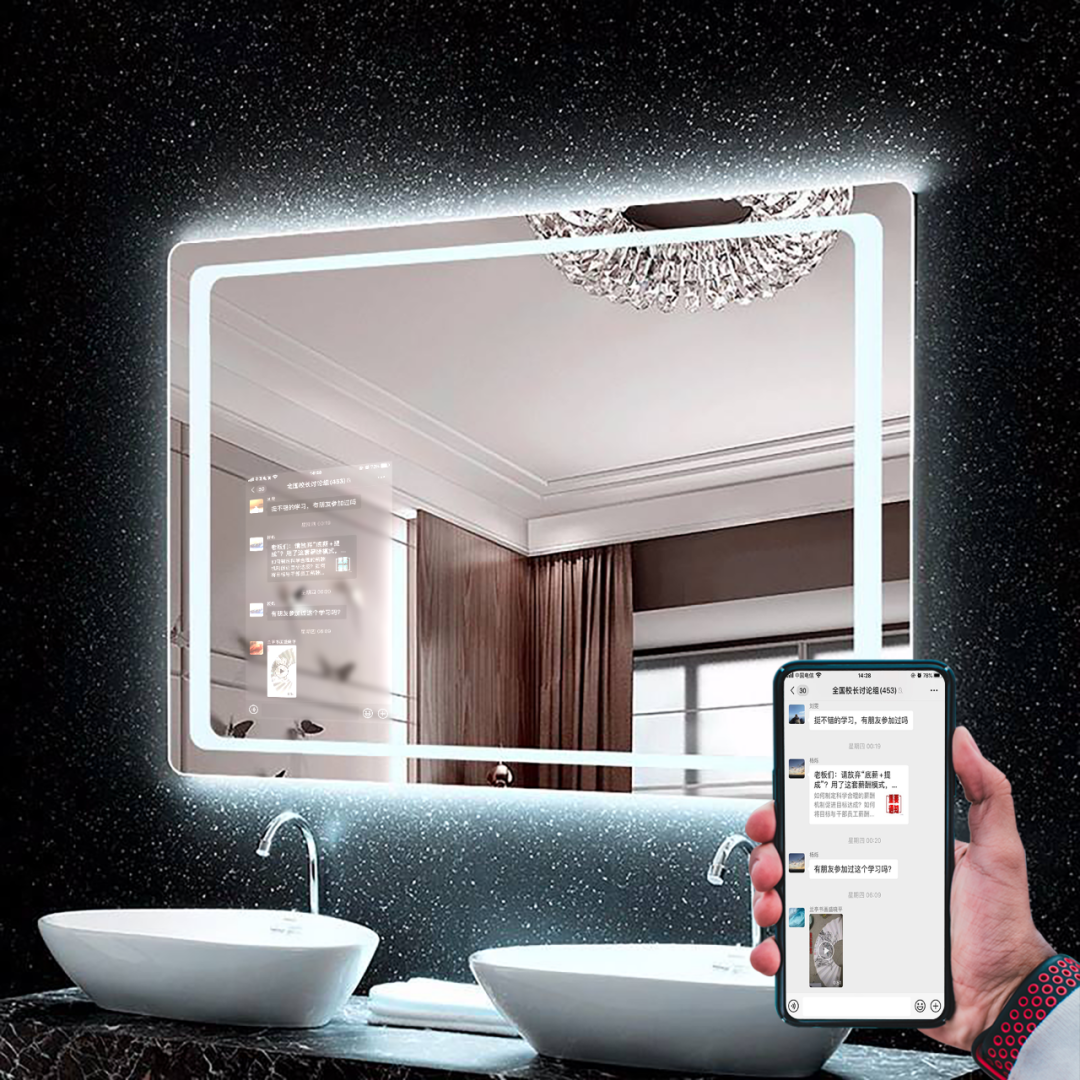
Partners

Suzhou Bijie Network Co., Ltd. is a leading provider of multi screen collaboration solutions. The company independently develops multi screen interaction and intelligent image processing technology, focusing on providing multi screen collaboration product solutions for the intelligent office and smart education industries, helping enterprises and schools improve office learning efficiency, solve communication and management problems, and make information interaction simpler.
Bijie Internet has multiple independent intellectual property rights in the fields of intelligent image processing, wireless screen projection, and other technologies, and its technological level is at the forefront of the industry. The company provides professional wireless screen projection solutions for many well-known domestic enterprises and educational institutions, providing customers with more perfect solutions and thoughtful technical services.